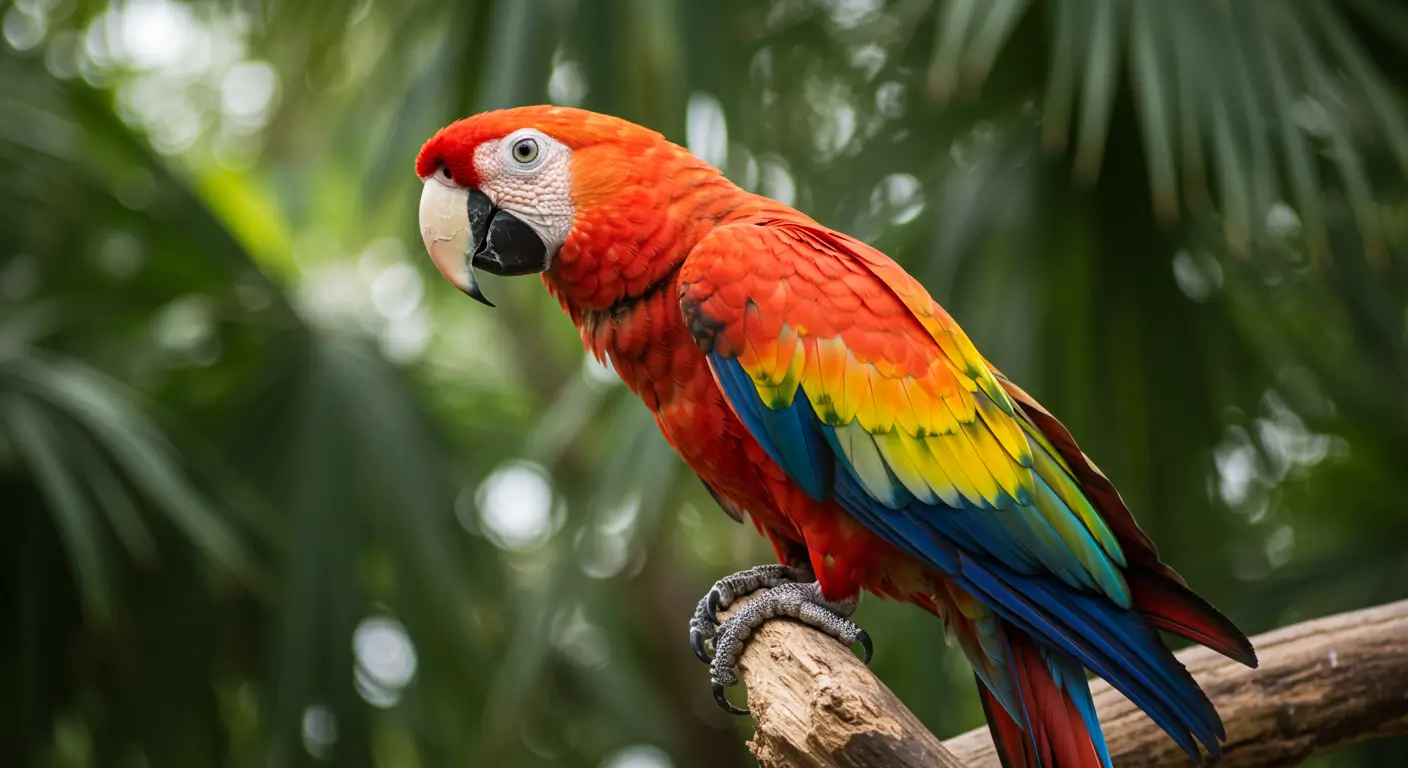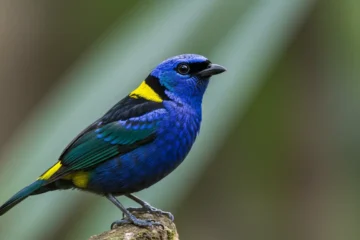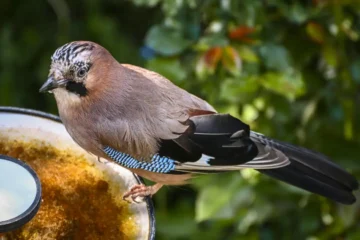The Scarlet Macaw is a bright and colorful parrot native to the rainforests of Central and South America. This bird is one of the most recognized parrots in the world. It is known for its striking red, blue, and yellow feathers.
They are highly intelligent, social, and can even mimic human speech. Conservation efforts are in place to protect their wild populations due to habitat loss and illegal pet trade.
Scarlet Macaw Images
Scarlet Macaw Price
The price of a Scarlet Macaw ranges from $2,000 to $5,000, influenced by factors such as age, breeder reputation, and location. Trained birds or rare color mutations can cost over $7,000.
Characteristics of Scarlet Macaw
This bird has many unique characteristics which make it one of the most famous birds in the wildlife of the USA.
Scarlet macaws can grow up to 3 feet long which makes them one of the largest parrots. Their powerful beak can easily crack open hard nuts and seeds, even breaking through tough shells that most birds can’t handle. Scarlet macaws can copy human words, nature sounds, and even household noises like a phone ringing. They stay together forever with their mate which represents deep affection and even sharing food with their partner. They can live as long as 70–80 years in captivity which makes them a lifetime companion for their owners. They help forests grow by eating fruits and spreading seeds. This plays a key role in maintaining healthy ecosystems. Their strong wings allow them to fly long distances at speeds of up to 35 mph which helps them escape predators. They love to communicate, often found in loud, playful flocks where they interact, groom, and chatter with each other. They sometimes sleep with one eye open unlike other birds. This helps them to stay alert for potential dangers even at night. They remember and recognize their owners, forming deep emotional connections and showing loyalty. Their strong and dexterous feet allow them to hold food, climb trees, and even grip objects with impressive control. These birds are seen in central and southern parts of the country where they add to the beauty of the wildlife. The sightseeing of these birds should be captured by some good shots from camera. Scarlet Macaws are intelligent and social, but they need lots of attention, space, and care. They can be noisy and live for decades. A Scarlet Macaw typically costs between $2,000 and $5,000, depending on factors like age, breeder reputation, and location. Rare color mutations or trained birds can exceed $7,000. They eat fruits, nuts, seeds, and vegetables. In captivity, a balanced diet includes pellets, fresh produce, and occasional treats. They are native to Central and South America, found in rainforests from Mexico to Brazil. They are not officially endangered, but habitat loss and illegal pet trade have reduced their population in some areas.
General Characteristic
Scarlet Macaw’s Features
Scientific Name
Ara macao
Size
32 to 36 inches long
Wingspan
Around 3.5 to 4 feet
Weight
2 to 2.5 pounds
Color
Bright red body with yellow and blue wings
Beak
Large, strong, and curved, perfect for cracking nuts
Lifespan
Up to 50 years in the wild, 75 years in captivity
Habitat
Rainforests of Central and South America
Diet
Fruits, seeds, nuts, and flowers

1. One of the Largest Flying Parrots in the Americas
2. Surprisingly Strong Beak
3. Excellent at Mimicking Sounds

4. Bond for Life with Their Partner
5. Can Live Over 70 Years
6. Vital for Forest Regeneration

7. Can Fly Up to 35 Miles Per Hour
8. Social Butterflies of the Bird World
9. Unique Sleeping Habits

10. Recognizes and Forms Bonds with Humans
11. Can Use Their Feet Like Hands

Sightseeing of Scarlet Macaw
Location
State Where it is Located
San Diego Zoo
California
The National Aviary
Pennsylvania
St. Augustine Alligator Farm Zoological Park
Florida
Houston Zoo
Texas
Phoenix Zoo
Arizona
Dallas World Aquarium
Texas
Bronx Zoo
New York
Oregon Zoo
Oregon
Audubon Zoo
Louisiana
Zoo Miami
Florida

Photography Tips for Scarlet Macaw

FAQ
1. Are Scarlet Macaws good pets?
2. How Much Does a Scarlet Macaw Cost?
3. What do Scarlet Macaws eat?
4. Where do Scarlet Macaws live in the wild?
5. Are Scarlet Macaws endangered?











